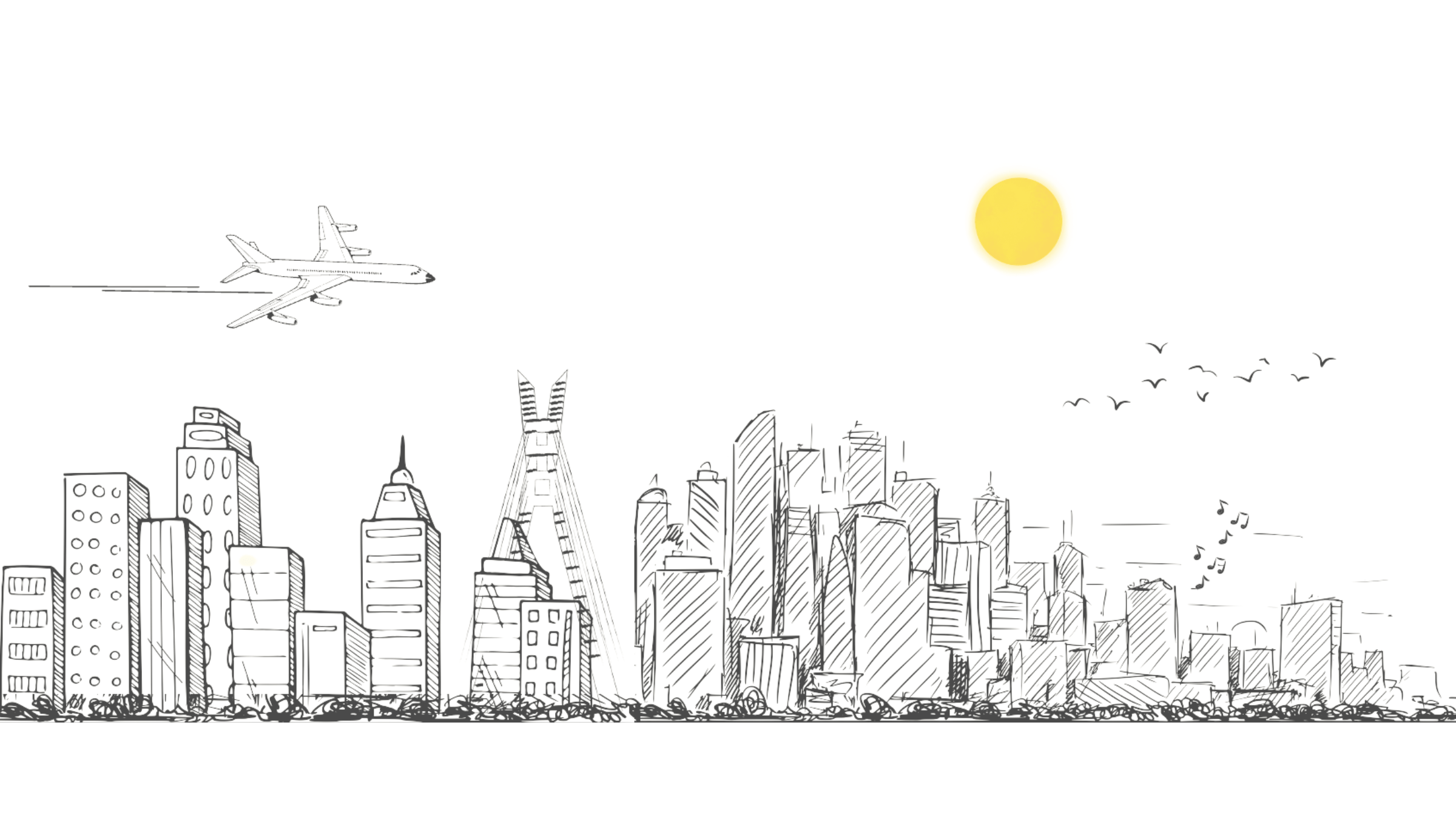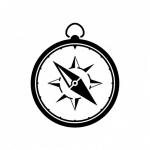The Republic is hiring a Business Intern to join our Lagos team. Apply by 17 May 2024. Read more.
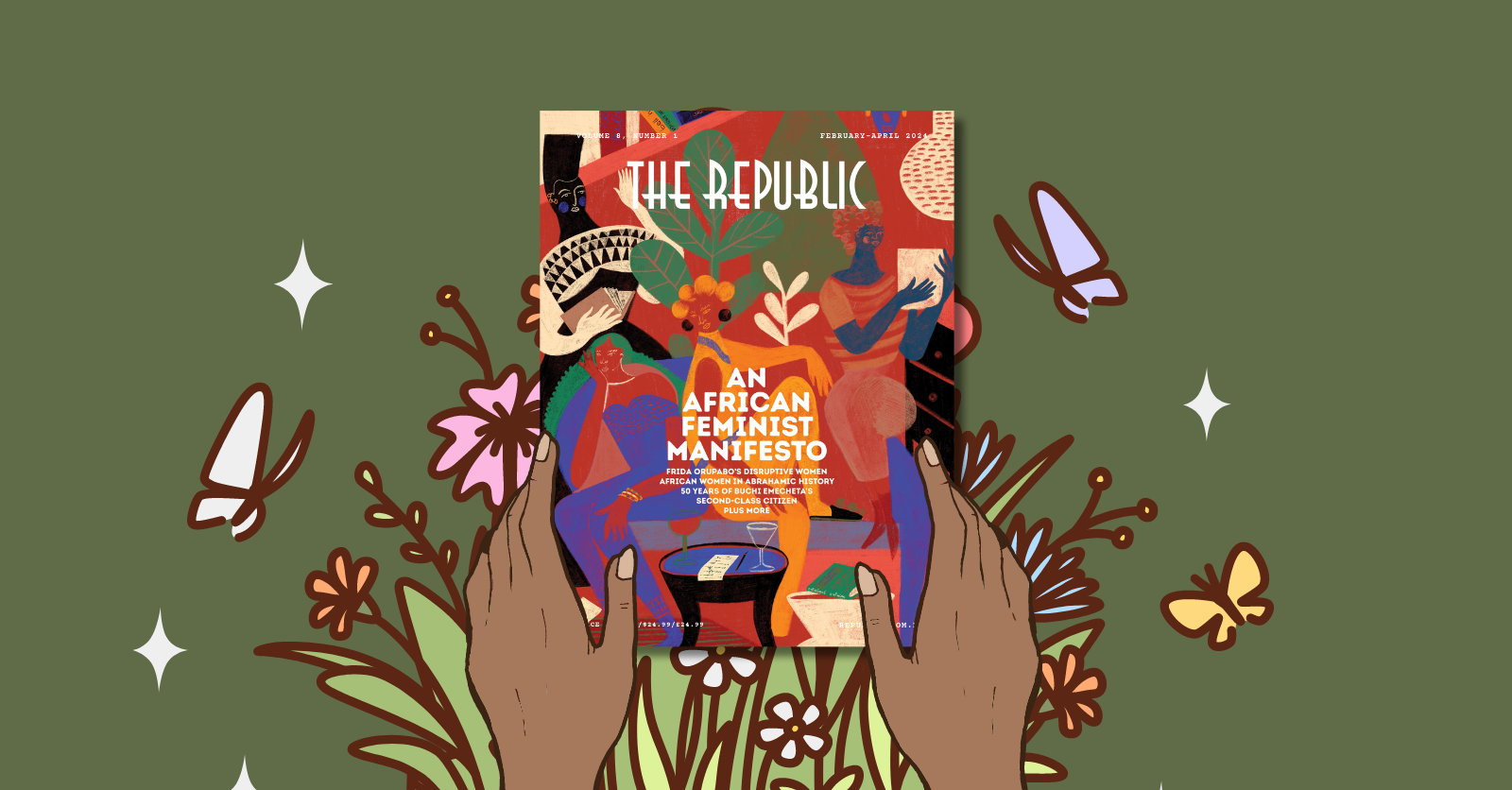
OUR BEST WRITING OF 2023
Every year, The Republic publishes the most ambitious writing focused on Africa, from news and analysis to long-form features.
Support our award-winning coverage by subscribing today.
Read our best writing of 2023.
Our latest issue, An African Feminist Manifesto, considers the imperatives for Black African feminism(s) in our uniquely uncertain times, plus more.
Save up to 50% by purchasing an annual print + digital subscription, and get unlimited access to The Republic. We ship worldwide.
Every year, The Republic publishes the most ambitious writing focused on Africa, from news and analysis to long-form features.
Support our award-winning coverage by subscribing today.
Our print + digital subscription is 50% off.
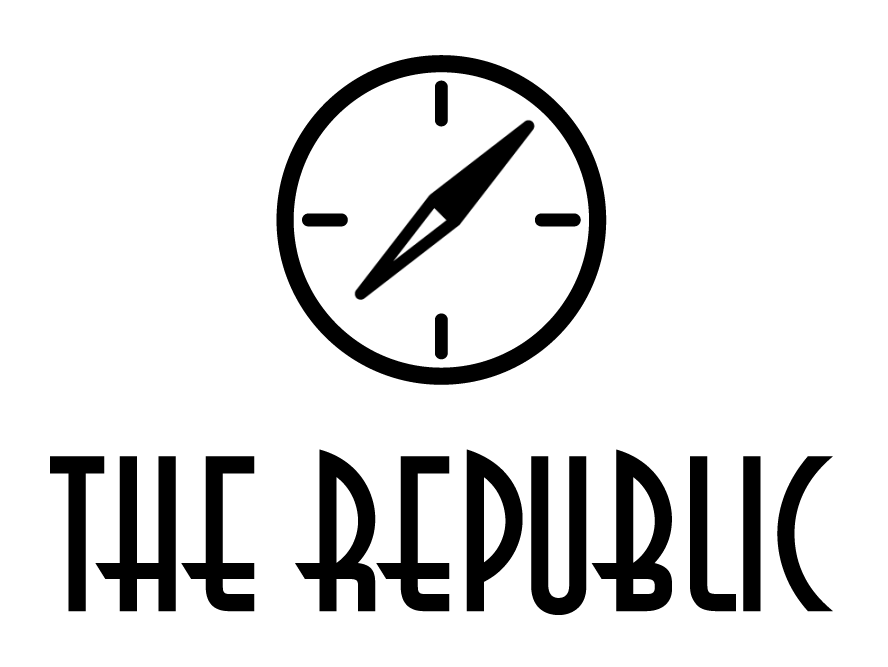

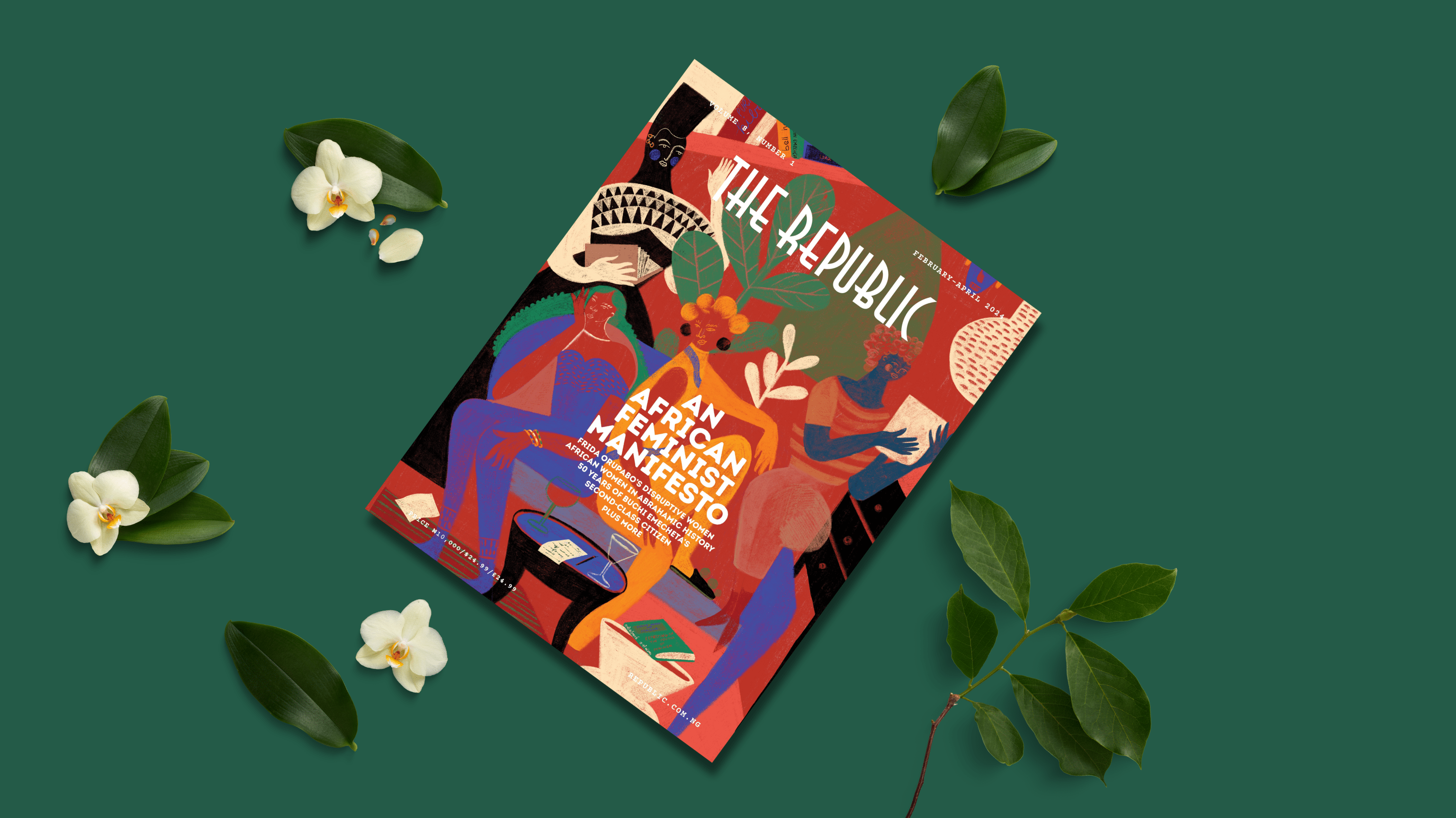
Our latest issue, An African Feminist Manifesto, considers the imperatives for Black African feminism(s) in our uniquely uncertain times, plus more.
Save up to 50% by purchasing an annual print + digital subscription, and get unlimited access to The Republic. We ship worldwide.
The Republic is hiring a Business Intern to join our Lagos team. Apply by 17 May 2024. Read more.
Our top analyses, debates, ideas and stories of the week.
Haiti was once a success story of enslaved Africans who withstood French and, subsequently, American imperialism. So much has changed since. Reflecting on Haiti’s national anthem, the ‘Dessalinienne’, I found irony in the descent into madness my country is currently experiencing.
The Republic is hiring Editorial Interns to join our Lagos team. Apply by 17 May 2024. Read more.
The Republic is hiring a Business Intern to join our Lagos team. Apply by 17 May 2024. Read more.
For a traumatized population that is frequently gaslighted with state propaganda, the 2023 documentary—Bobi Wine: The People’s President—tugs at something that many Ugandans have tried to kill inside of them.
One only realizes the notions of love in one’s life when they become absent. Read the sequel to ‘Living in America, Leaving Nigeria’.
As Nigerians face economic and social challenges, it is important that they express their grievances through protests. However, certain groups have resorted to a different form of ‘protest’, which is used to water down the legitimate concerns of the people.
Because we aim to interest the Nigerian public in literature with literary criticism, our language should not be as private and subversive as the language of the writers whose works we aim to demystify.
Perhaps a latecomer to pan-African ideology, Ethiopian Emperor Haile Selassie I was nevertheless unique in his contribution to pan-Africanism. He urged all those working for a united global Africa to consider pan-Africanism as not an end unto itself, but an indispensable means toward a broader horizon of a new humanity free from imperialism and exploitation.
Senator Ningi’s suspension by the Senate after he raised allegations of budget padding has made him a hero in the eyes of Nigerians. But it would be unwise to distance Ningi from the National Assembly establishment, a system he has been part of and helped cultivate since 1999.
To encounter a body in collage is to momentarily believe the human form is physically and even gesturally incapable of coming up against its own limitations. Frida Orupabo’s collages do this so well. They haunt the viewer with fond, familiar and unexpected shapes.
The announcement by Burkina Faso, Mali and Niger of their exit from ECOWAS, 24 years after Mauritania’s exit in 2000, threatens to de-Sahelize the regional bloc. It marks more fundamental problems associated with spatial inequality and its influence in West African national and regional politics that are yet to be addressed head on.
The joy of being a reader lies in discovering new thoughts, ideas, and histories. Over the past year, we have asked some authors about the books that changed their minds about something. Here’s what they told us.
In our latest book recommendation, we have compiled a list of seven books that explore various aspects of marriage and relationships—from communication and conflict resolution to intimacy and personal growth.
The National Youth Service Corps (NYSC) began as a conciliatory post-war programme aimed at nation-building. But now, it is a softer, but no less punitive drafting system with adverse consequences on young people and Nigeria’s finances.
For a traumatized population that is frequently gaslighted with state propaganda, the 2023 documentary—Bobi Wine: The People’s President—tugs at something that many Ugandans have tried to kill inside of them.
The Republic is hiring a Business Intern to join our Lagos team. Apply by 17 May 2024. Read more.
The Republic is hiring Editorial Interns to join our Lagos team. Apply by 17 May 2024. Read more.
Haiti was once a success story of enslaved Africans who withstood French and, subsequently, American imperialism. So much has changed since. Reflecting on Haiti’s national anthem, the ‘Dessalinienne’, I found...
Because we aim to interest the Nigerian public in literature with literary criticism, our language should not be as private and subversive as the language of the writers whose works...

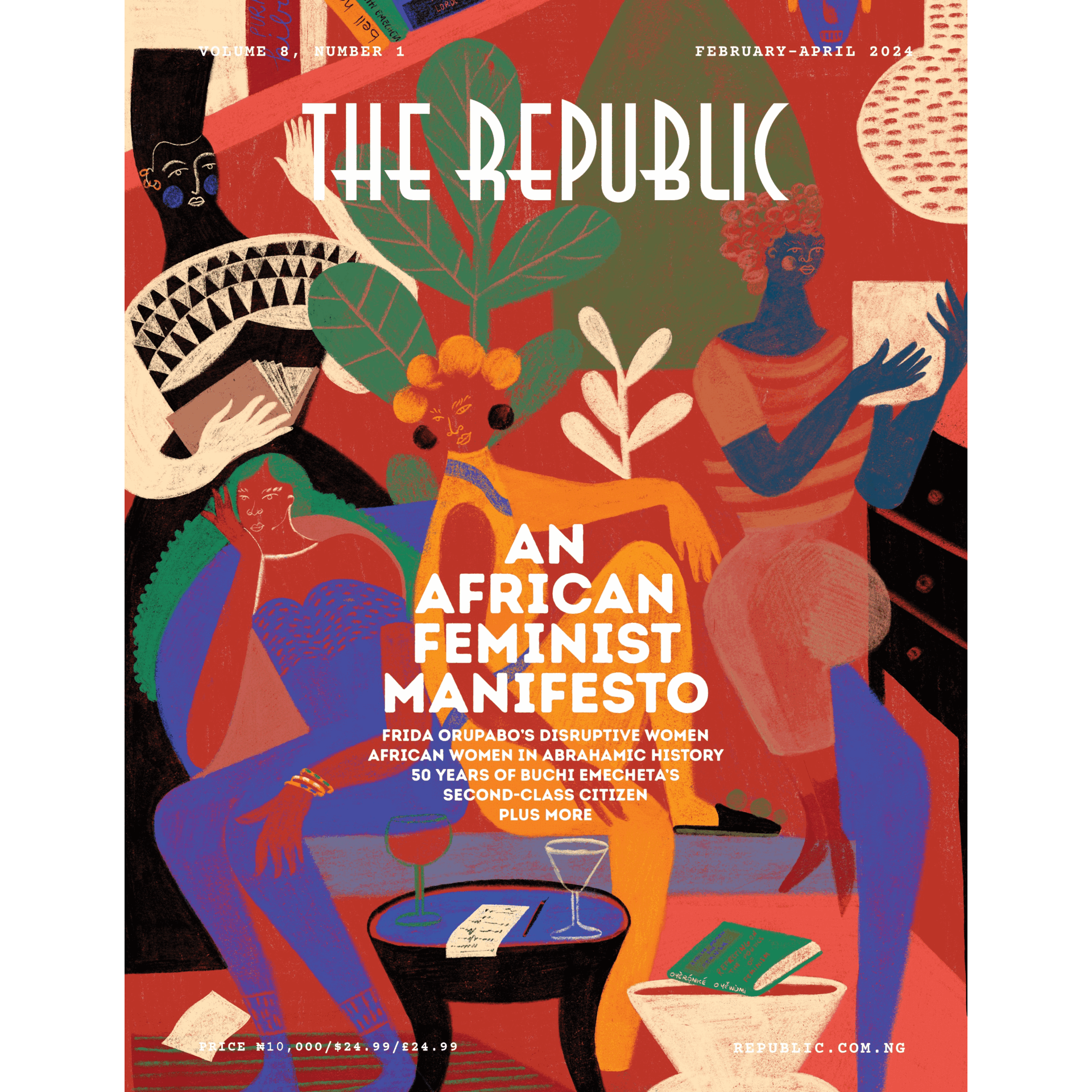
Now Available: Our February – April 2024 Print Issue
Featuring:
Ololade Faniyi on decolonial African feminism; Kéchi Nne Nnomu on Frida Orupabo; Kai Mora on African Women in Abrahamic history; Peace Onafuye on Buchi Emecheta; plus more.

Now Available: Our February – April 2024 Print Issue
Featuring:
Ololade Faniyi on decolonial African feminism; Kéchi Nne Nnomu on Frida Orupabo; Kai Mora on African Women in Abrahamic history; Peace Onafuye on Buchi Emecheta; plus more.
For whom is the transformative potential of feminism new? Our latest issue, An African Feminist Manifesto, considers the imperatives for Black African feminism(s) in our uniquely uncertain times, plus more.
Decolonial African feminist thought is equal parts rage and radical care. It is a collaborative and unbiased call to action that insists on justice, self-determination, and autonomy, building on the legacies of foremothers to create our lifelines for our future and the ones that come after us.
To encounter a body in collage is to momentarily believe the human form is physically and even gesturally incapable of coming up against its own limitations. Frida Orupabo’s collages do this so well. They haunt the viewer with fond, familiar and unexpected shapes.
Though the presence of Abrahamic tradition within global Black consciousness often finds expression through male-dominated narratives, a closer examination uncovers Black women at the very centres of the most path-altering moments in the tradition, offering analogues with which Black women have interpreted, reimagined and reclaimed their past, present, and future.
In 1974, Buchi Emecheta’s novel, Second-Class Citizen, was published. While this novel has inspired a generation of African writers, the themes Emecheta explored—such as Black immigrant life in the UK and the ills of a patriarchal society—remain as relevant today as ever.
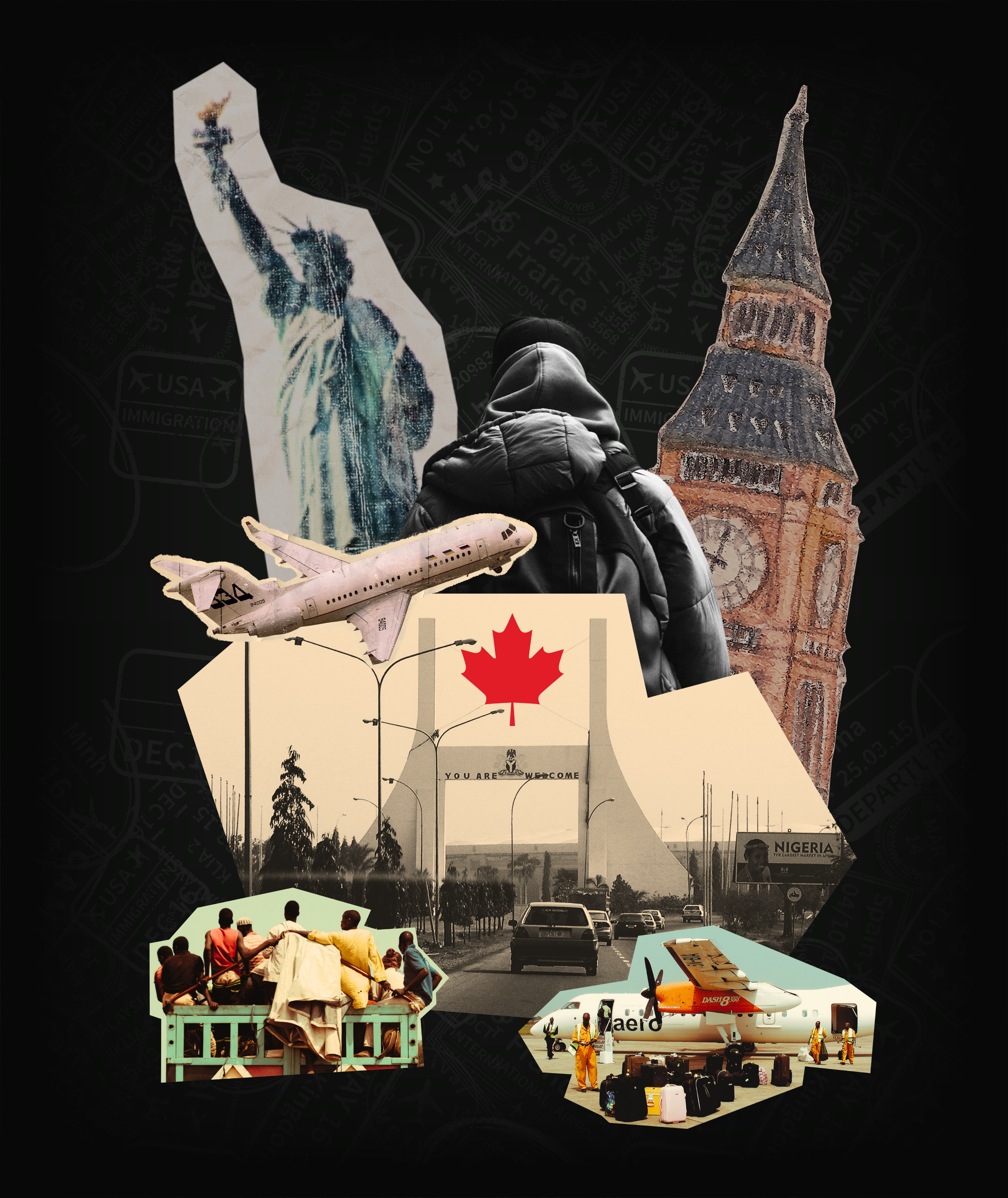
From the ‘Checking Out’ of the 80s to today’s ‘Japa’ wave, Nigeria’s enduring struggle with brain drain has lasted far too long. Despite promises of change, the nation continues to grapple with familiar challenges that drive its citizens abroad in search of more; more opportunities, more peace of mind, and the ability to be more.
From the ‘Checking Out’ of the 80s to today’s ‘Japa’ wave, Nigeria’s enduring struggle with brain drain has lasted far too long. Despite promises of change, the nation continues to grapple with familiar challenges that drive its citizens abroad in search of more; more opportunities, more peace of mind, and the ability to be more.
We get it. Sometimes the headline stories are just not enough.
The joy of being a reader lies in discovering new thoughts, ideas, and histories. Over the past year, we have asked some authors about the books that changed their minds...
Because we aim to interest the Nigerian public in literature with literary criticism, our language should not be as private and subversive as the language of the writers whose works...
One only realizes the notions of love in one’s life when they become absent. Read the sequel to ‘Living in America, Leaving Nigeria’.
For a traumatized population that is frequently gaslighted with state propaganda, the 2023 documentary—Bobi Wine: The People’s President—tugs at something that many Ugandans have tried to kill inside of them.
The renewed case for stronger economic integration within ECOWAS.
For decades, Nigeria has been trying and failing to set up a national airline. Why? This is the story of a long chain of Nigerian aviation scandals.
Being a force in an industry is a difficult position to attribute to anyone. But after producing the top three highest-grossing movies in Nollywood and being the first and only...
Naira’s exchange rate despite being of huge interest to Nigerians is not the only indicator of the state of the country’s economy. Focus, instead, should be on what steps the...
For much of the sixties, Kampala was at the centre of literature in Africa, its status propelled by Makerere University and Rajat Neogy’s Transition Magazine. However, in the seventies, the...
Perhaps a latecomer to pan-African ideology, Ethiopian Emperor Haile Selassie I was nevertheless unique in his contribution to pan-Africanism. He urged all those working for a united global Africa to...
Challenging the narrative that Mungo Park ‘discovered’ the Niger River brings to the fore the complex legacy of European explorations in Africa. It underscores the urgent need for a shift...
Colonialism shaped, is shaping and, as it appears, will continue to shape the realities of Africa. As a postcolony, Africa is still searching for identity, rediscovering itself and finding creative...
As Nigerians face economic and social challenges, it is important that they express their grievances through protests. However, certain groups have resorted to a different form of ‘protest’, which is...
Senator Ningi’s suspension by the Senate after he raised allegations of budget padding has made him a hero in the eyes of Nigerians. But it would be unwise to distance...
Nyesom Wike’s appointment as minister of the Federal Capital Territory, Abuja by President Bola Ahmed Tinubu could be Wike’s biggest political task yet. As minister, he will have to govern...
A new element in geopolitics across Africa is the growth of political consciousness and the willingness to organize against unfavourable status quos. Recent events in Mali, Niger and Burkina Faso...
We all grew up hearing about ‘June 12’, but how well do you know what really happened? Let’s find out together. The first episode of The Republic is now available...
This episode will establish M. K. O. Abiola as a major actor. It will examine his personal life; his initial foray into business and politics; and areas of his life...
In this episode, we take a look at the key election candidates and what platforms they ran under. We compare their profiles and proposed agendas for Nigeria, highlighting what political...
After eight years of anticipation, and eight years of promises from General Ibrahim Babangida’s junta, Nigerians were finally about to have their say at the ballot box. In this week’s...
After going viral on social media, the women-led team at sanitary pad provider, Aya Care, found themselves at the centre of a renewed discussion about menstrual hygiene in Nigeria. What...
Cosmetic endeavours aimed at achieving lighter skin have led to the development of different skin-bleaching beauty methods that leave the body open to grave health repercussions.
Despite their prominence in the Nigerian imagination, almajirai and their experiences in health have been overlooked in research. Socially-grounded research models may offer some ways to address this.
Technology can play an important role in transforming Nigeria's livestock industry by improving productivity, efficiency, and sustainability. By leveraging innovative solutions, the technical, socioeconomic, and security problems prevalent in the...
Haiti was once a success story of enslaved Africans who withstood French and, subsequently, American imperialism. So much has changed since. Reflecting on Haiti’s national anthem, the ‘Dessalinienne’, I found...
The announcement by Burkina Faso, Mali and Niger of their exit from ECOWAS, 24 years after Mauritania’s exit in 2000, threatens to de-Sahelize the regional bloc. It marks more fundamental...
‘To Kenyans, 2023 feels like the year the country dies. But within this Rhumba and Jazz establishment in Nairobi’s Tao, it could as well be 1970,’ Ogwa writes. ‘Perched behind...
In the aftermath of Brexit, the UK experienced a notable shift in migration patterns, attracting previously eschewed non-EU citizens, especially those from former colonies like Nigeria. But this opportunity is...
